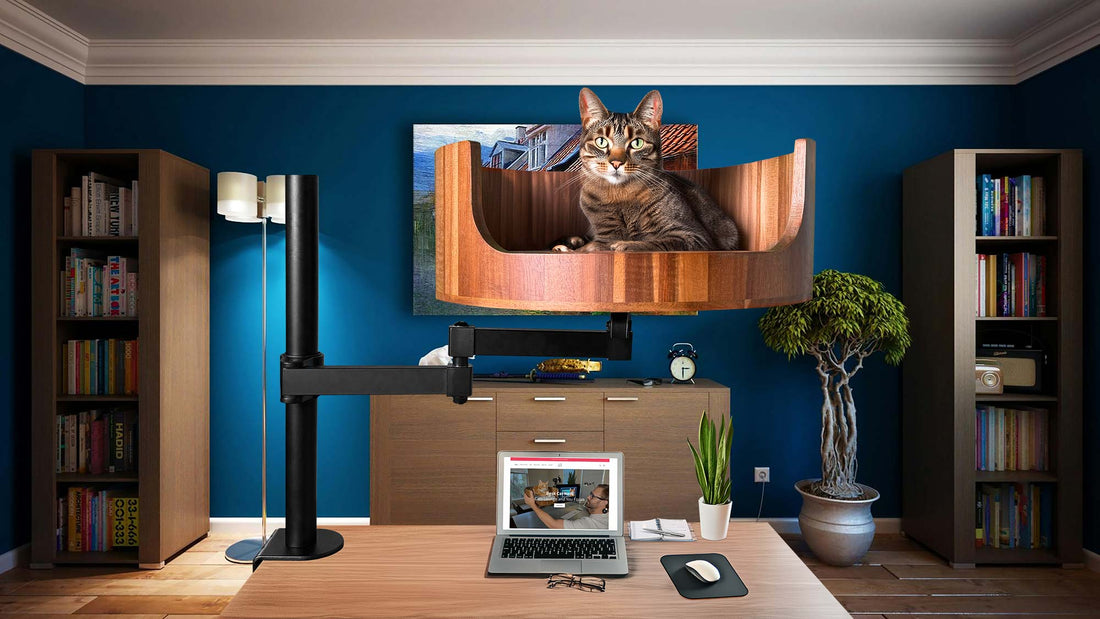
My Cat Snores: Understanding Feline Sleep Sounds
Share
Do you ever find yourself chuckling at the sight of your feline companion peacefully napping, only to be surprised by a loud snore erupting from their tiny body? You're not alone. Many cat owners are curious about their pets' sleep sounds and what they might mean. In this article, we will delve into the world of feline sleep sounds, specifically focusing on the mysterious phenomenon of cat snoring. From why cats snore to when it might be a cause for concern, we will explore everything you need to know about your cat's nighttime noises.
While some cat owners might be alarmed by their pet's snoring, it's actually quite common and often harmless. Cats, like humans, can experience different stages of sleep that can result in various sounds, including snoring. However, excessive snoring or sudden changes in your cat's sleep sounds could indicate an underlying health issue that requires attention. By understanding the reasons behind your cat's snoring, you can better care for your furry friend and ensure they are getting the restful sleep they need. So, the next time you hear your cat snoring away, you can rest assured knowing that it's all just a part of their normal sleep habits.
1. Cats can snore during sleep, which is typically harmless but can sometimes indicate underlying health issues.
2. Different breeds of cats may snore more or less frequently due to differences in anatomy and genetics.
3. Factors such as weight, age, and respiratory issues can contribute to snoring in cats.
4. Regular veterinary check-ups are important to monitor your cat's overall health, including any changes in sleep patterns.
5. Understanding your cat's normal sleep sounds and behaviors can help you identify any potential issues early on.
Types of Cat Snores
There are various types of cat snores that pet owners may encounter. The most common type is the soft, rhythmic snore that occurs when a cat is in a deep sleep. This type of snore is usually not a cause for concern and can be quite adorable to hear. However, some cats may also snore loudly or irregularly, which could be a sign of an underlying health issue such as respiratory problems or obesity. It is important for pet owners to pay attention to the type of snoring their cat is exhibiting and consult a veterinarian if they have any concerns.
Causes of Cat Snoring
There are several possible reasons why a cat may snore. One common cause is the position in which they are sleeping - if a cat is lying on its back with its mouth open, it is more likely to snore. Other causes of cat snoring may include allergies, respiratory infections, obesity, or structural abnormalities in the airways. In some cases, snoring can also be related to stress or anxiety. It is important for pet owners to observe their cat's sleeping habits and environment to determine the possible causes of their snoring.
Treatment for Cat Snoring
If a cat's snoring is causing discomfort or is indicative of an underlying health issue, it is important to seek treatment. Depending on the cause of the snoring, treatment options may include weight management, allergy medication, respiratory therapy, or surgery to correct structural abnormalities. In some cases, improving the cat's sleeping environment by providing a comfortable bed or reducing stressors can also help reduce snoring. It is crucial for pet owners to work closely with a veterinarian to address any concerns related to their cat's snoring and ensure their pet's well-being.
Desk Cat Nest FAQ
Can the Desk Cat Nest help with my cat's snoring?
While the Desk Cat Nest is not specifically designed to address snoring in cats, providing a cozy and comfortable resting place for your cat may help reduce snoring by promoting better sleep habits.
Is the Desk Cat Nest suitable for all cat breeds?
The Desk Cat Nest is suitable for most cat breeds, but it may not be ideal for very large or overweight cats. It's best to measure your cat's dimensions and compare them to the nest's dimensions to ensure a proper fit.
How should I clean the Desk Cat Nest?
The Desk Cat Nest should be cleaned regularly by removing any loose fur or debris and spot cleaning with a mild detergent and water. It is not recommended to machine wash or dry the nest, as this may damage the materials.
Will my cat easily adjust to the Desk Cat Nest?
Most cats will quickly adapt to the Desk Cat Nest, especially if it is placed in a quiet and comfortable area where your cat likes to rest. You can encourage your cat to use the nest by placing familiar bedding or toys inside.
Can the Desk Cat Nest be used for outdoor cats?
The Desk Cat Nest is designed for indoor use only and may not withstand the elements if used outdoors. It's best to provide a separate shelter for outdoor cats that offers protection from the weather.
In conclusion, the Desk Cat Bed is a valuable choice for helping with your cat's snores. This innovative product provides a comfortable and cozy sleeping space for your feline friend, helping them relax and breathe easier during sleep. The raised design also helps to alleviate any potential breathing obstructions that may be causing the snoring. By investing in a Desk Cat Bed, you can improve your cat's overall sleep quality and reduce their snoring, leading to a happier and healthier pet.



















































